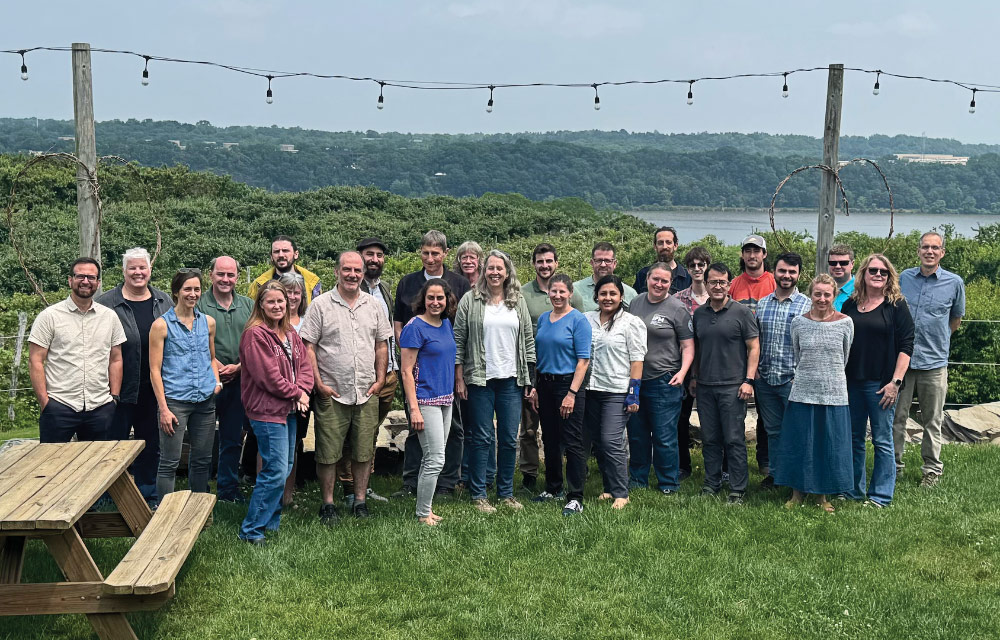Cornell Integrated Pest Management: Bringing Safe and Sustainable Pest Management to New Yorkers for 40 Years
By Carrie Carmenatty, Cornell Integrated Pest Management
A research project on apples, a $75,000 grant from the United States Department of Agriculture’s Extension Service, and a pioneering spirit were the catalysts for what has become one of the nation’s most acclaimed integrated pest management programs.
The seed for what is now Cornell Integrated Pest Management (Cornell IPM) took root in 1973 when James Tette, Ph.D., a chemist at Cornell’s New York State Agricultural Experiment Station in Geneva, was tapped to head a project designed to reduce pesticide use by apple growers. By 1985, the success of that project had led to the establishment of the New York State Integrated Pest Management Program (NYSIPM) by making it a requirement under State Agriculture and Markets law. By 1999, the program expanded to support IPM practices in communities through support from the New York State Department of Environmental Conservation.
 |
|
The Cornell IPM team. |
Four decades later, the roots of that program have stretched across New York State, bringing IPM practices that reduce risks to human health, the environment, and the community to all of New York’s 20 million residents.
Cornell IPM advances research and education on options to manage pests while protecting human, environmental, and economic health and provides critical strategies for managing invasive species, rodents, weeds, and pests that impact structures, livestock health, field and vegetable crops, and fruit. The 2023 addition of the Pesticide Safety Education Program (formally a program of Cornell Cooperative Extension) to the Cornell IPM team further strengthened Cornell IPM’s commitment to protecting New Yorkers and the environment by ensuring pesticide applicators have access to essential training and resources.
The program launched a year-long celebration of its 40th anniversary this spring with a rebranding initiative that included the adoption of the name Cornell Integrated Pest Management and the completion of a comprehensive strategic plan. These efforts highlight the program’s deep connection to the purpose-driven science and innovation of Cornell University’s College of Agriculture and Life Sciences and Cornell AgriTech and its commitment to the university’s land-grant mission.
Cornell IPM has a team of more than 35 coordinators and support staff who lead research and extension efforts and has become a trusted partner of the New York State Department of Agriculture and Markets and the New York State Department of Environmental Conservation.
From rapid responses to threats from emerging invasive species, to key research initiatives—such as current efforts to explore sustainable alternatives and help growers adopt IPM practices to transition from neonicotinoid seed treatments—to boots-on-the-ground extension work, helping schools and municipalities reduce pest intrusion, and ensuring pesticide applicators have access to the tools and training they need to stay safe, Cornell IPM continues to leverage the pioneering spirit that made the program possible, while minimizing the impact of pests across the state.
